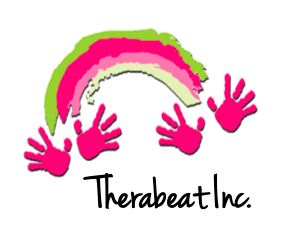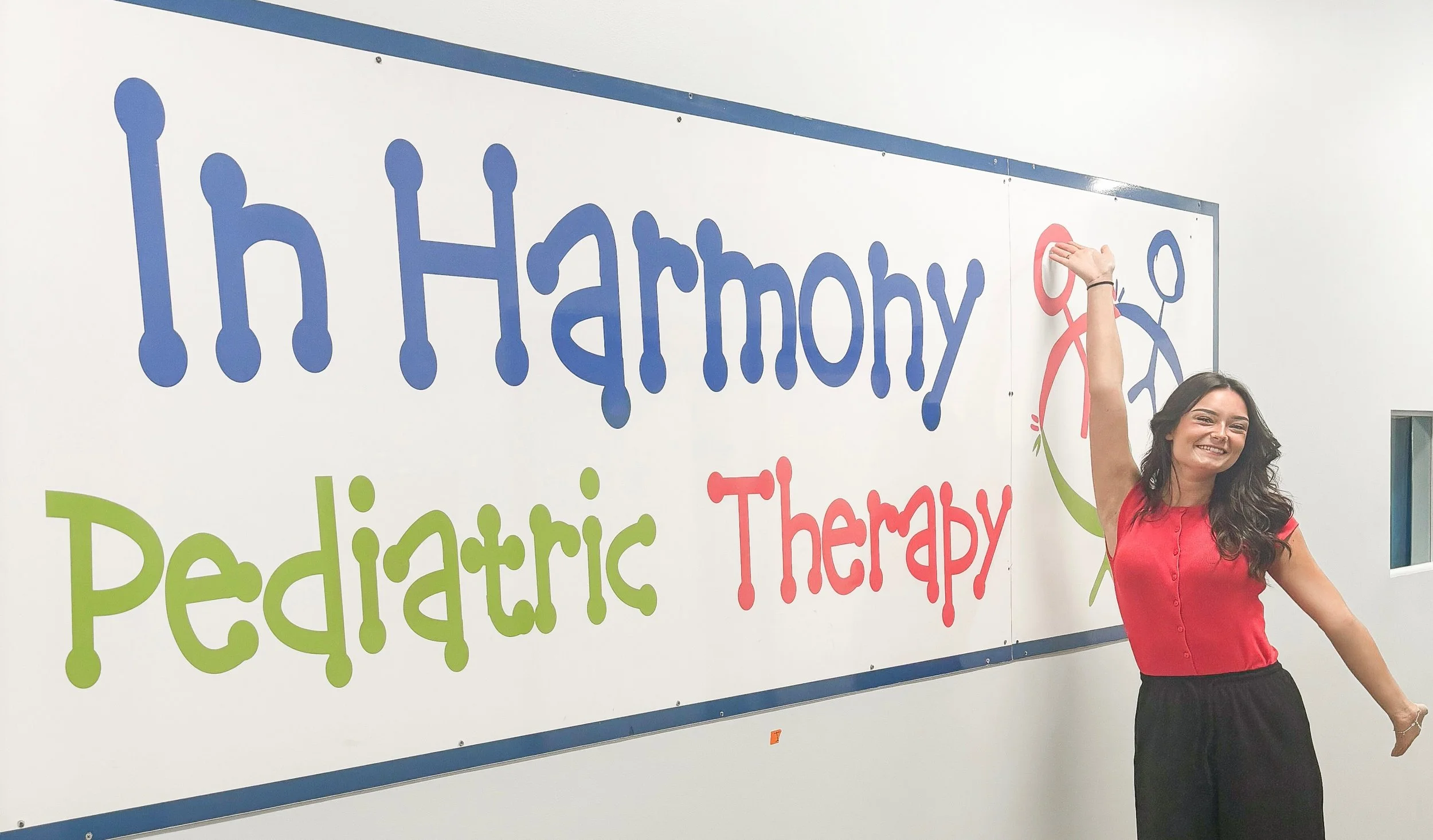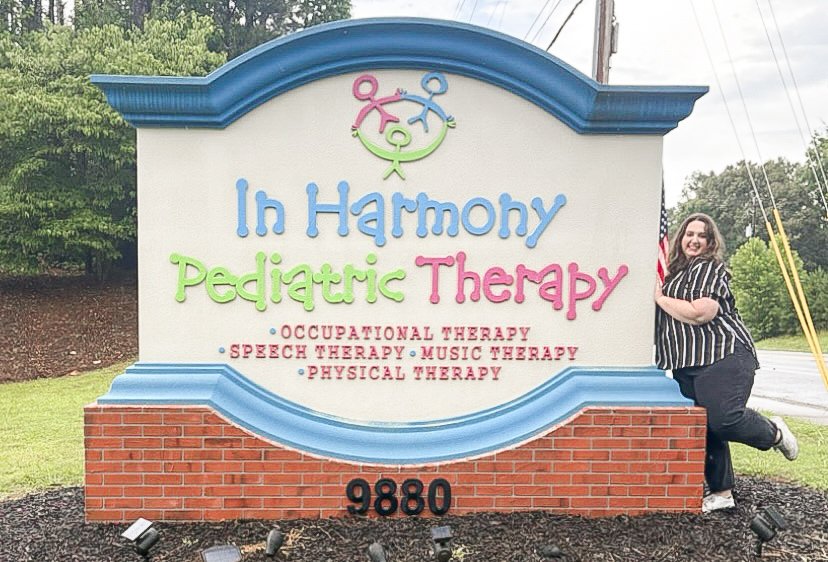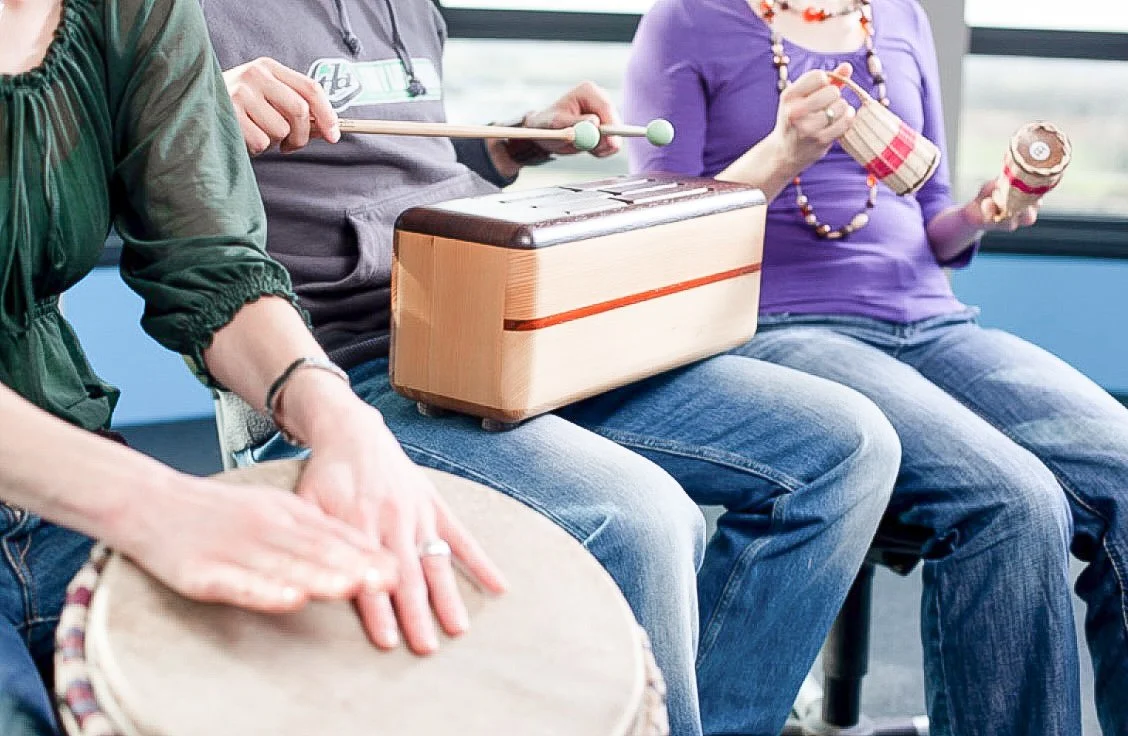My name is Sally, and I’m so excited to be one of the newest Music Therapy interns here at Therabeat Inc. at InHarmony Pediatrics! I’m currently completing my undergraduate degree at Georgia College, and my primary instrument is voice. I’m a proud soprano!
My first week with Therabeat has been incredible. I’ve had the opportunity to sit in on over 20 sessions and meet clients with a wide range of strengths and needs. Each client has been truly amazing, and the staff has been equally wonderful. I’ve felt so welcomed, and the passion for music therapy here is genuinely contagious.
While I feel incredibly supported by the team, I’d be remiss if I didn’t acknowledge that starting an internship can feel overwhelming. I’m surrounded by experienced professionals who know every client, every corner of the building, and what it means to be a music therapist. That can definitely feel intimidating, but I know I can always reach out to my supervisors for guidance and encouragement when I need it. Plus, reflecting on the hard work and accomplishments I achieved during undergrad reminds me that I’m capable and prepared for this next step.
This week, I’ve encountered clients with needs that are completely new to me. Observing sessions has already pushed me to think beyond my current intervention toolkit and consider creative, individualized ways to meet each client where they are. Also, there are a lot of clients! But honestly, that’s a great thing.
Outside of sessions, I’ve been reading The Out-of-Sync Child by Carol Stock Kranowitz (2005). It’s a compassionate, insightful, and highly practical resource. I finished the book feeling more empathetic toward children with sensory processing challenges and even more motivated to support them as I grow in my role as a therapist. The message is clear: every child is doing their best, even if that best looks different from what we may expect.
I’ve also connected with the other three interns here, and I already feel lucky to have them alongside me. Asila and Rebecca have been such amazing MT interns to observe, as they cater each session towards the clients strengths and needs. At the end of our first week, Anna and I joined the group for lunch—and we ended up staying and talking for three hours! I’m looking forward to watching them grow at Therabeat and beyond, and I’m already looking forward to catching up at future conferences (and hopefully another long lunch!).
I’m excited to continue meeting new clients who will eventually become part of my caseload. Most of all, I’m excited for the future. If my first week at Therabeat is any indication of what’s ahead, I feel confident that I’ll be happy and fulfilled as a board-certified music therapist.
Here we go!
-Sally Waits, Music Therapy Intern






